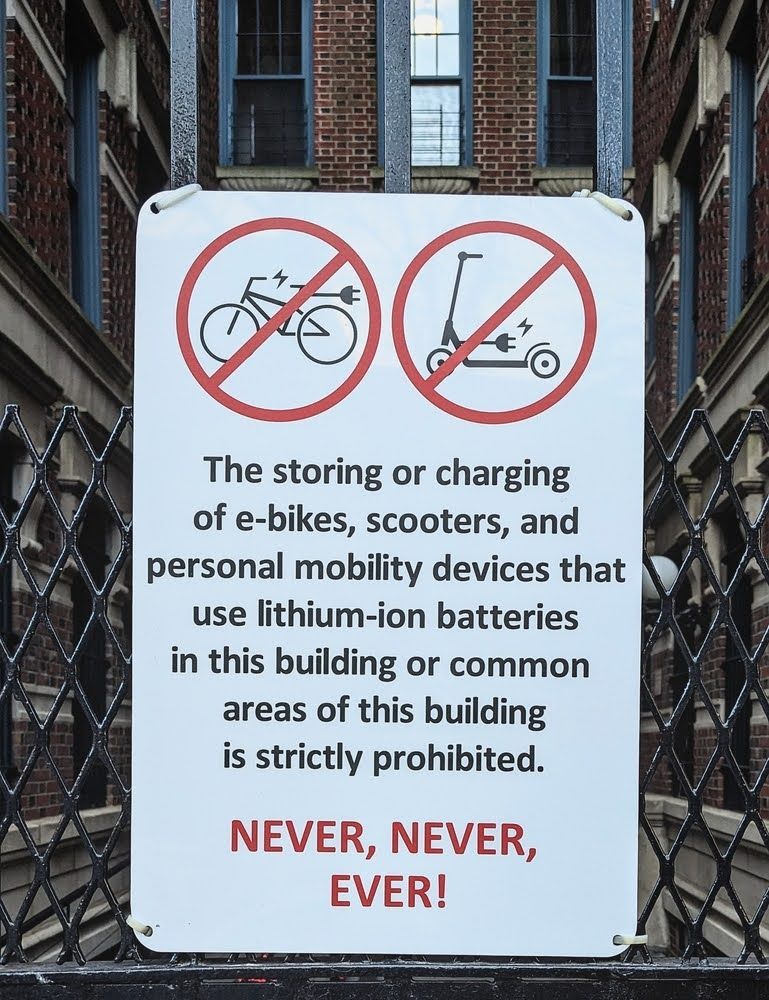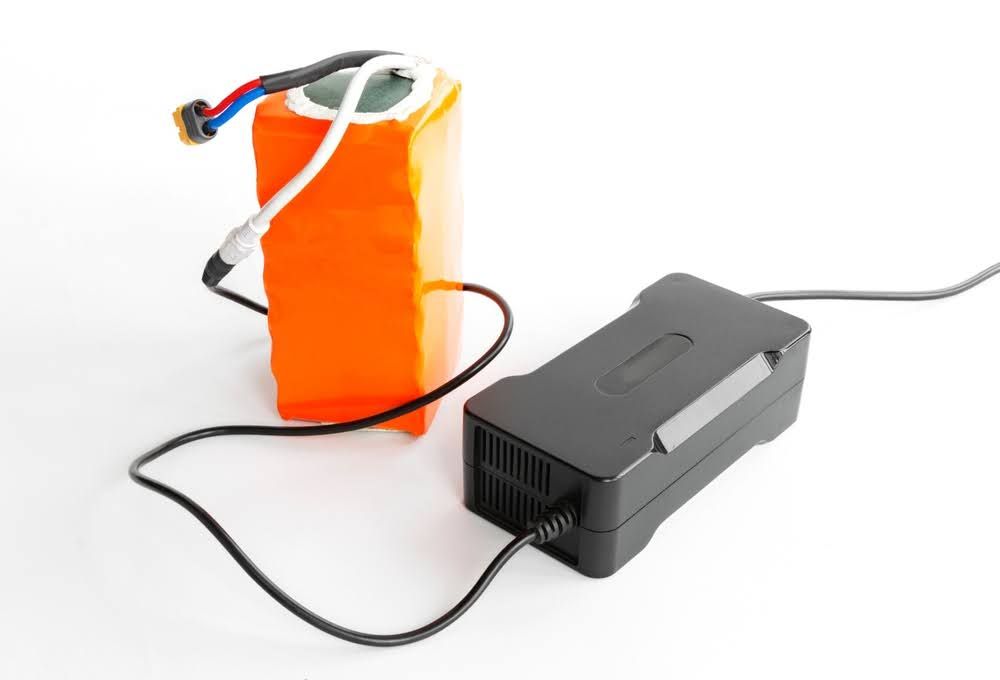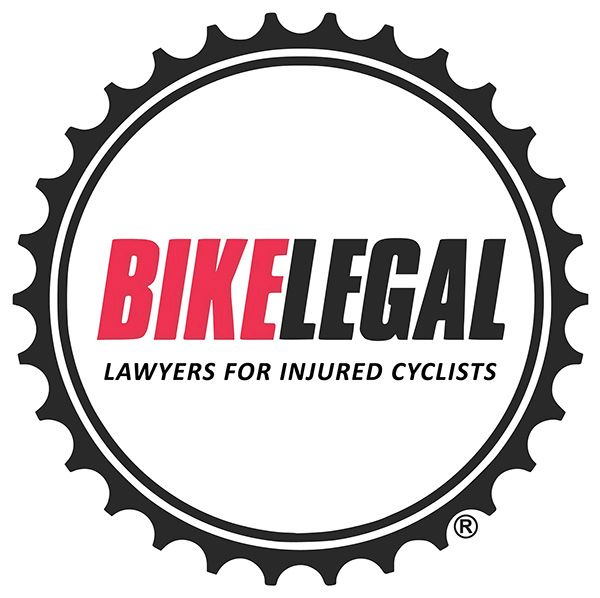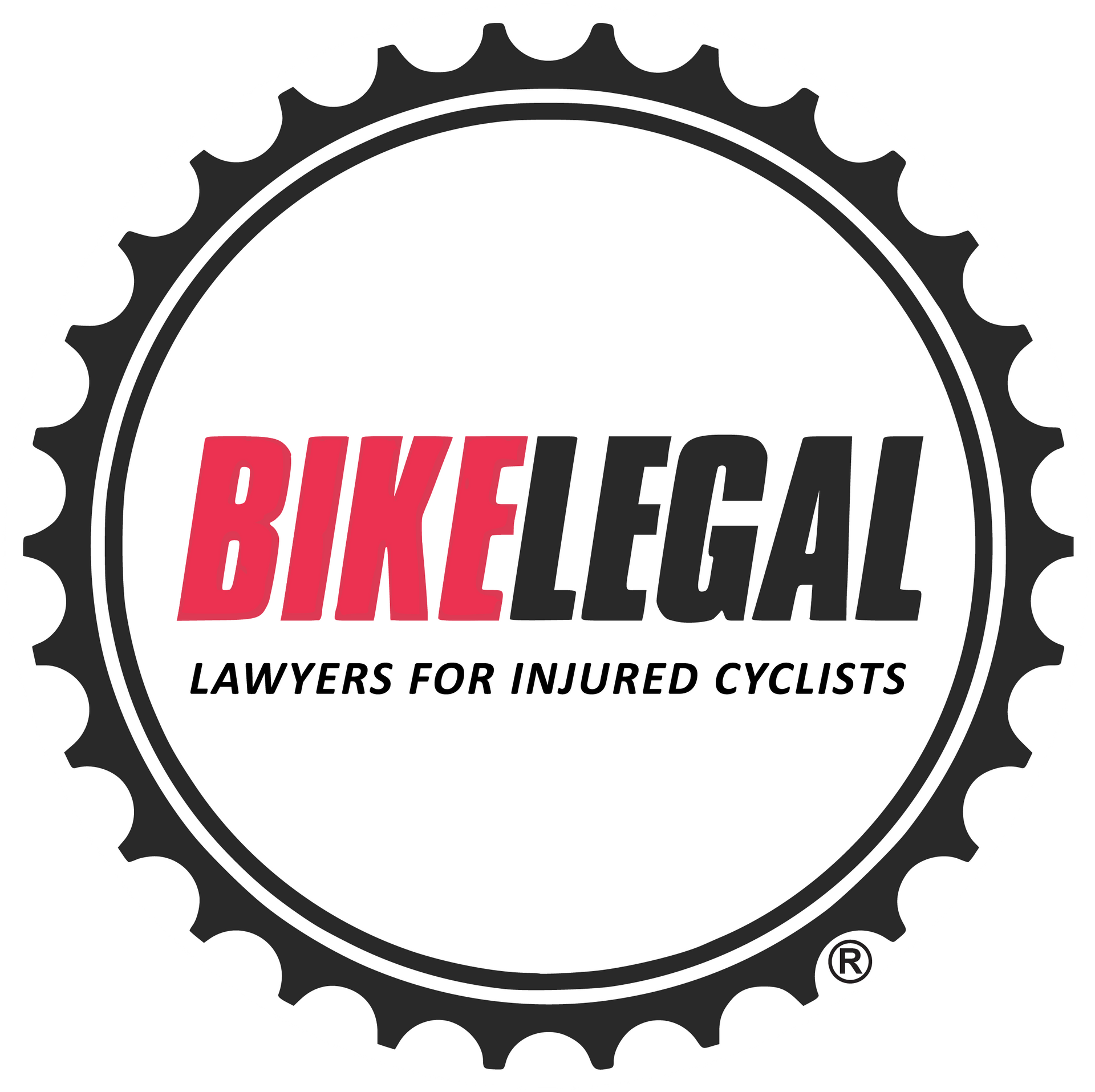California's E-Bike & Battery Safety Law: Senate Bill 1271 Explained (2025–2028)
Follow us on
social media!
E-bikes are booming in California, but so are the safety risks. Lithium-ion battery fires have made headlines nationwide, with uncertified batteries and DIY conversion kits creating serious hazards for riders.
Senate Bill 1271, signed into law on September 27, 2024, aims to solve this growing problem by establishing comprehensive safety standards for e-bikes, powered mobility devices, and their batteries. The legislation creates a clear timeline for implementation and sets California as a leader in e-bike safety.
In this article, we'll cover:
- The specific safety standards and testing requirements mandated by SB 1271
- How will these regulations affect riders, retailers, and manufacturers
- The implementation timeline and what you need to know to stay compliant
Why California Senate Bill 1271 Was Passed
California's new e-bike safety law didn't emerge from nowhere. It’s part of a broader legislative response to the growing public safety risks associated with electric bicycles, particularly those related to battery fires.
SB 1271 is just one of several new laws aimed at improving e-bike safety statewide. For a complete overview of California’s updated regulations, including helmet rules, classification changes, speed modifications, see our guide: California E-Bike Laws 2025: New Rules, Restrictions, and Safety Requirements.
Surge in Lithium-Ion Battery Fires

Nearly 24% of all EV fires are directly caused by lithium-ion batteries.
Across the country, lithium-ion battery fires have been increasing at an alarming rate. In New York City alone, the FDNY reported over 200 lithium-ion battery fires in 2022, resulting in 6 deaths and 150 injuries. Many of these incidents were traced back to uncertified e-bike batteries, aftermarket chargers, or DIY conversion kits that lacked basic safety features.
The problem has been growing in California, too, with fire departments reporting similar incidents in urban areas where e-bikes are popular for commuting and delivery services. These fires aren't minor – they burn extremely hot, can release toxic gases, and often spread rapidly through buildings.
DIY Kits and Imported Batteries Lacking Safety Certification
A significant part of the problem stems from the unregulated market for e-bike conversion kits and replacement batteries. Many of these products, especially those imported directly from overseas manufacturers:
- Lack basic safety features like overcharge protection
- Use substandard materials that are prone to thermal runaway
- Don't undergo any safety testing or certification
- Consumers often install them without proper technical knowledge
These uncertified products have flooded the market through online retailers, creating a dangerous situation where consumers can't easily distinguish between safe and unsafe options.
Pressure from Fire Departments and Safety Advocacy Groups
The push for SB 1271 came after sustained pressure from multiple stakeholders:
- Cal Fire advocated strongly for statewide standards after responding to numerous lithium battery fires
- Fire departments, particularly in New York City and San Francisco, have reported responding to more than 660 fires involving lithium-ion batteries since 2019.
- Safety advocacy groups, such as the California Bicycle Coalition and CalBike, support the legislation.
These groups collectively urged lawmakers to address the regulatory gap before more lives were lost or properties damaged.
Lack of Clear Federal Standards
A key factor driving California's legislation was the absence of comprehensive federal standards specifically for e-bikes and their batteries. While some voluntary industry standards exist:
- No federal mandate required compliance with UL or other safety standards
- The Consumer Product Safety Commission could only react to problems, not prevent them
- Existing regulations weren't keeping pace with the rapidly evolving e-bike market
- The regulatory gap allowed dangerous products to enter the market legally
Without federal leadership on this issue, California followed its tradition of setting state-level consumer protection standards that often become de facto national standards due to the size of the California market.
California's approach to e-bike safety continues to evolve, with recent legislation like AB 2234 granting cities in San Diego County the authority to ban children under 12 from riding Class 1 and 2 e-bikes, promoting safety. These complementary laws show California's comprehensive approach to e-bike regulation.
What SB 1271 Does: Core Provisions and Requirements

Senate Bill 1271 establishes a comprehensive framework for the safety of e-bikes and batteries in California. Here's what the law does:
Safety Standards and Testing Requirements
The heart of SB 1271 is its mandate for third-party safety testing. Starting January 1, 2026, all e-bikes, powered mobility devices, and their batteries sold or leased in California must be tested by accredited laboratories to meet specific safety standards:
- Certification: UL 2849 or EN 15194 standards, which test electrical systems for fire safety, water resistance, and overall electrical safety
These standards aren't just paperwork – they involve rigorous testing for common failure points that cause fires, including:
- Overcharging protection
- Short circuit prevention
- Impact resistance
- Water exposure safety
- Thermal management
Mandatory Labeling Requirements
Beyond testing, SB 1271 requires clear labeling so consumers can identify compliant products. Starting in 2026, all new e-bikes, batteries, and charging systems must display:
- The name or logo of the accredited testing laboratory
- The specific certification standard the product meets
Retailers and manufacturers will be unable to sell uncertified units after January 1, 2026.
Restrictions on Non-Compliant Products
The law establishes clear prohibitions against selling or distributing non-compliant products:
- Beginning January 1, 2026, no person may distribute, sell, or lease an e-bike, powered mobility device, or related equipment unless it meets the required safety standards
- Beginning January 1, 2028, these restrictions extend to rental operations as well
Violations are considered Vehicle Code offenses, which can result in penalties for non-compliant retailers and distributors.
The new law is part of a broader trend of updating e-bike regulations across California. Santa Barbara recently updates its bicycle and e-bike laws with safety-focused changes, showing a statewide commitment to addressing these issues.
Updated E-Bike Definitions Under SB 1271
SB 1271 also clarifies and updates California's legal definitions of e-bikes, which are crucial for understanding which vehicles are covered by the new regulations.
New E-Bike Class Definitions
The law maintains California's three-class system for e-bikes but adds important clarifications:
- Class 1: Must use pedal assist only. The throttle is allowed only during startup (up to 3.7 miles per hour).
- Class 2: Still allows throttle use, with a top speed capped at 20 mph.
- Class 3: Pedal assist only, with a top assisted speed of 28 mph and a required speedometer.
What's Not Considered an E-Bike Under SB 1271
The law also clarifies what doesn't qualify as an electric bicycle:
- Devices with motors exceeding 750 watts
- Any bike that exceeds the speed limit of 20 mph (unless Class 3 via pedal assist).
- Bikes modified to exceed their class's speed or power limits
- Bikes with pedals removed
- Bikes without fully operable pedals (such as scooters or electric motorcycles misbranded as e-bikes).
- Vehicles that don't meet the safety certification requirements
This distinction is important because vehicles that don't qualify as e-bikes may require registration, insurance, or a driver's license to operate legally in California.
For a complete breakdown of e-bike classes, check our guide on Everything You Need to Know About E-bikes (Electric Bicycles).
Fire and Electrical Safety Standards (Effective Jan 1, 2026)
SB 1271 sets comprehensive testing and certification standards to prevent battery fires and electrical hazards.
A. Role of the State Fire Marshal
- Tasked with developing and enforcing safety standards in the California Fire Code: The Office of the State Fire Marshal is given authority to establish detailed regulations implementing SB 1271's safety requirements and ensuring compliance across the state.
B. Required Testing & Certification
Batteries and electrical systems must comply with specific recognized standards:
- UL 2849, EN 15194 – For e-bikes: These standards test the complete electrical systems of e-bikes for safety, including battery management systems, wiring, and controls.
- UL 2272, UL 2271 – For powered mobility devices: These standards apply to personal mobility devices and their battery systems, ensuring they meet similar safety requirements.
- Chargers must be matched and certified for specific devices: The law requires that charging systems be specifically tested and certified for use with their corresponding batteries to prevent charging-related fires.
C. Mandatory Labeling
All new e-bikes, batteries, and chargers must display:
- Name/logo of the accredited testing lab: This identifies which laboratory performed the safety certification.
- Certification standard: The specific standard (e.g., UL 2849) that the product has been tested to meet must be clearly indicated.
- Exemption: No label required on secondhand sales: Private party sales of used e-bikes are exempt from the labeling requirement, though commercial resellers may still need to comply.
D. Documentation Requirements
- When asked, sellers must be able to produce documentation proving their products have undergone the required safety testing.
Rental Market Compliance Under SB 1271 (Effective Jan 1, 2028)
Rental companies have an extended timeline to update their fleets with certified e-bikes and batteries.
- Applies the same safety standards to rental e-bikes, mobility devices, and batteries: Rental operations must ensure their fleets meet the same safety standards as retail products, though they have a longer timeline for compliance.
- Chargers must also be compliant and matched to certified equipment: The safety requirements extend to charging systems used in rental operations.
- No labeling required for rentals—but certification is still mandatory: While rental e-bikes don't need to display certification labels, operators must still ensure all equipment meets safety standards.
SB 1271 Implications for Riders, Retailers, and Manufacturers
SB 1271 creates a safer e-bike ecosystem, but it also introduces new responsibilities for everyone involved.
- Consumers: Greater fire safety and fewer dangerous aftermarket products. While riders will benefit from reduced fire risks, they may face higher prices.
- Retailers: Must verify certifications and test reports before selling or leasing any e-bikes or related equipment. This adds a new layer of responsibility to ensure compliance with state regulations.
- Manufacturers/Importers: Higher compliance burden, especially for small or overseas sellers who may struggle with the costs of testing and certification processes.
- DIY Conversions: Aftermarket kits now face stricter scrutiny or may be banned entirely if they don't meet certification requirements, significantly impacting the hobbyist conversion community.
What Riders Need to Know About CA Senate Bill 1271
If you're an e-bike rider in California, here are the key takeaways:
🔒 All e-bike batteries sold in California must be certified starting in 2026. Any battery purchased new after this date must meet UL 2849, EN 15194, or equivalent safety standards.
⚠️ Throttles are no longer allowed on Class 3 e-bikes. Only Class 2 e-bikes may use a throttle (up to 20 mph), and Class 1 e-bikes may use a throttle only for low-speed startup assist (up to 3.7 mph). Class 3 e-bikes must be pedal-assist only.
🚫 Bikes modified to exceed speed or wattage limits cannot be sold or labeled as e-bikes. Modifications that exceed 750 watts or the class speed limit of your bike reclassify it as a motor vehicle.
🔋 DIY kits and uncertified replacement batteries may no longer be allowed. Compliance with the California Fire Code is mandatory.
✅ Check your e-bike's classification and labeling to stay compliant and avoid confiscation. Riders may face penalties for using bikes that violate e-bike regulations.
Pros and Benefits of California SB 1271
SB 1271 offers several significant benefits to California's e-bike community and the broader public.
- Reduces fire risk from uncertified lithium-ion batteries. By requiring safety testing, the law directly addresses the primary cause of catastrophic e-bike fires.
- Protects consumers from dangerous or mislabeled products. Precise labeling requirements help riders identify safe, compliant products when making purchasing decisions.
- Establishes clear testing and labeling standards for all new e-bikes. The standardized approach creates consistency across the market and eliminates confusion.
- Positions California as a national leader in e-bike safety policy. As with many consumer protection initiatives, California's approach may influence regulations nationwide.
Cons and Criticisms of California SB 1271
Despite its safety benefits, SB 1271 has faced several criticisms from various stakeholders.
- Higher product costs for consumers. The testing and certification requirements are likely to increase prices for e-bikes and their components.
- Regulatory burden on small retailers and manufacturers. Smaller businesses may struggle with compliance costs and documentation requirements.
- Uncertainty around enforcement and oversight. Questions remain about which agencies will be responsible for enforcing the new standards.
- Potential limitation on innovation and aftermarket upgrades. The certification requirements may restrict customization options and slow the development of new technologies.
Looking Ahead: The Future of E-Bike Safety in California
SB 1271 represents a significant step forward for e-bike safety in California, but it's likely just the beginning of evolving regulations in this space.
Potential Future Developments
We may see additional developments in the coming years:
- Expanded standards: Future updates may address emerging technologies or newly identified risks
- Harmonization: California's approach may influence federal standards or other states' regulations
- Enforcement clarification: Agencies will likely develop more detailed enforcement guidelines
Ride Protected. Ride Safe with Bike Legal

At Bike Legal, we’re cyclists first and lawyers second. We know what it’s like to ride in California traffic, and we’ve built our firm around protecting people who do. As passionate advocates for safer streets, we also invest time researching and sharing updates on the latest e-bike and bicycle laws to keep our community informed and empowered.
If you or someone you know has been injured in a bicycle or e-bike crash caused by someone else, trust the firm that cyclists trust. We know how to hold negligent drivers accountable — and how to get results.
Bike Legal is the #1 bicycle accident lawyer in California and nationwide.
📞 Call 877-BIKE LEGAL (877-245-3534) or submit a form to schedule your free consultation today.
Frequently Asked Questions (FAQs)
What kind of e-bike batteries are now illegal in California under SB 1271?
Any battery that hasn't been tested and certified by an accredited laboratory for compliance with safety standards, such as UL 2849, UL 2271, or EN 15194, cannot be sold, leased, or rented in California starting January 1, 2026. This includes many aftermarket, imported, and DIY batteries.
Can I still ride my current e-bike after 2026 if it doesn't have a certified battery?
Yes, as long as you're not selling, leasing, or renting the e-bike. SB 1271 does not ban personal use of existing e-bikes, even if their batteries are uncertified.
Does SB 1271 apply to online e-bike purchases from out of state?
Yes. If the e-bike, battery, or charging system is shipped to California, it must comply with the state's safety and labeling requirements, regardless of whether it was purchased online or from another state.
Are secondhand or used e-bikes affected by the SB 1271 labeling requirements?
Used (secondhand) sales are exempt from the labeling requirement under SB 1271. However, the product must still meet safety standards if it's being resold commercially.
Will SB 1271 affect e-bike rentals at tourist destinations in California?
Yes. Starting January 1, 2028, rental e-bikes, batteries, and chargers must also be tested and certified for safety. Operators must ensure their rental fleet complies or risk penalties.
Can I still buy or install an e-bike conversion kit in California?
Only if the battery and electrical system in the kit are tested and certified to the required standards. Kits with uncertified batteries will no longer be legal to sell or distribute in California.
What's the penalty for selling or distributing uncertified e-bikes or batteries?
Violating SB 1271 is considered a Vehicle Code offense and may result in criminal penalties or fines. Retailers and distributors should verify compliance to avoid potential legal consequences.
Who enforces California SB 1271, and how will it be implemented?
The Office of the State Fire Marshal is responsible for setting regulations and overseeing compliance. Local agencies may also be involved in enforcement, especially for sales and rental inspections.

